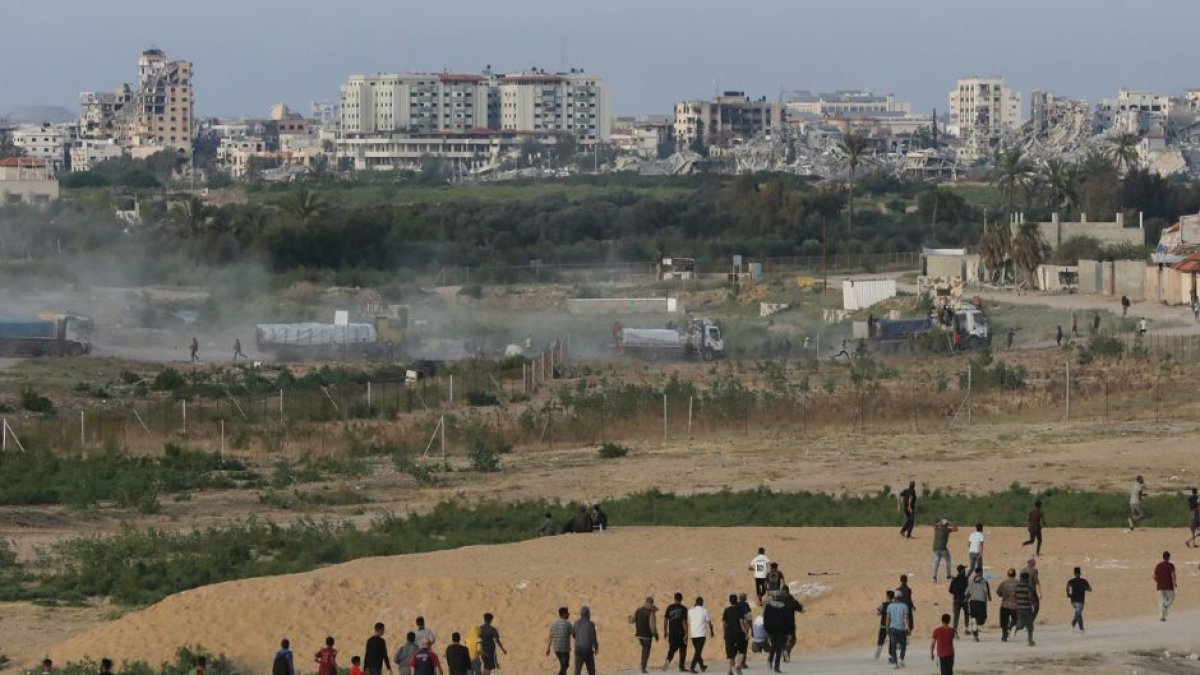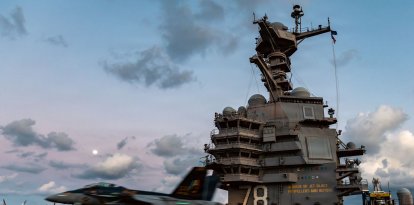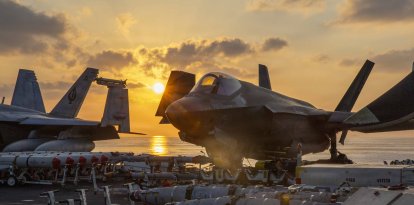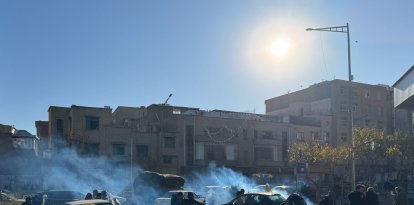Waves destroy $320 million floating dock built by US to transport humanitarian aid to Gaza
A Pentagon spokeswoman said the structure should be back up and running in about a week.

Palestinian civilians go to loot one of the few humanitarian aid trucks that managed to pass the floating dock. (Cordon Press)
A part of the floating dock built by the United States to bring humanitarian aid to Gaza was completely destroyed last Sunday due to severe weather last weekend, a Pentagon spokeswoman explained.
“Unfortunately, we had a perfect storm of high sea states, and then, as I mentioned, this North African weather system also came in at the same time, creating not an optimal environment to operate,” Sabrina Singh, deputy press secretary of the Pentagon, reported in a press conference held this Tuesday.
The partial destruction of the pier comes at a particularly tough time for Gaza, with most of the civilian population awaiting urgent humanitarian aid as the war unfolds between Israel and the Hamas terrorist group following the October 7 attacks.
Singh explained that army engineers are working tirelessly to rebuild the pier, and those responsible for the Department of Defense expect it “will be fully operational in just a little over a week.”
The pier, which so far cost $320 million, was improvised by the United States after President Joe Biden made a surprise announcement that the U.S. Army would build a pier for Gaza amid the humanitarian crisis suffered by the Palestinians in the enclave.
Most defense officials almost immediately predicted that there would be logistical and security problems around the dock, The New York Times reported.
According to a CNN report, the Joint Logistics Over the Shore (JLOTS) floating dock suffered problems last weekend because it basically requires very good sea conditions to operate.
CNN explained that the JLOTS can only operate safely in waves of a maximum of 3 feet (91 centimeters) and winds of less than approximately 15 miles per hour(24 kilometers per hour). On Saturday, a day before the pier broke due to strong waves, the storm even caused two smallU.S.S military ships that were part of the humanitarian operation to run aground in Israel.
So far, the pier has barely been able to operate.
On May 17, days after JLOTS began operating, humanitarian aid trucks were looted by Palestinian civilians on their way to a warehouse.
This situation forced theU.N.N World Food Program to suspend its operations until its security mechanisms were improved.
Unfortunately for U.S. efforts and civilians in the area, sea conditions worsened noticeably during that time, even though U.S. authorities thought the high tides would not begin until the summer.

























